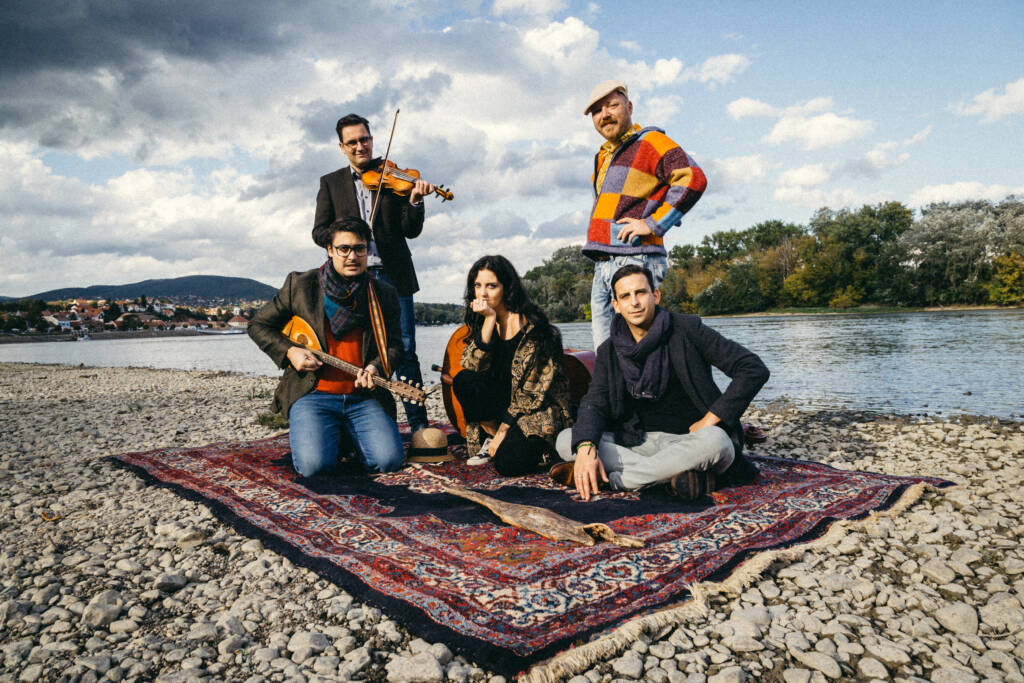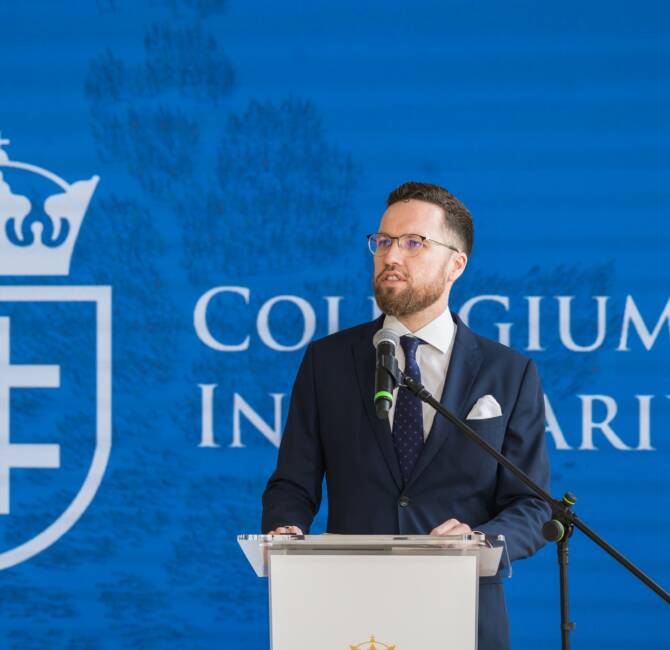Interview with Izabella Caussanel, lead-singer of the Hungarian music group Ötödik Évszak (Fifth Season): “We have to remember what a magnificent culture we have. Rediscover magnificent texts which really do tell us something.”
At the end of 2020, the group released “Ne rejtsd el” (Don’ Hid It), its inaugural album with 13 songs mixing different musical styles as well as the Hungarian and French languages. Whilst the majority of the album is inspired by Hungarian folksongs, certain songs have a more jazzy feel and the cultural mix put forward, whilst easily dismissed as a hotchpotch of “world music”, is more in step with a “Franco-Hungarian” theme.
Ferenc Almássy, who himself is of Franco-Hungarian ancestry, couldn’t miss to opportunity to interview the lead-singer of the group, Izabelle Caussanel, writer, translator and interpreter which gives her new group such a unique identity that has been very well received by the press and Hungarian music industry.
Hungarian and French poems – Our readers will recognise, or discover, the texts of Victor Hugo or Attila József – and jazzy Transylvanian acoustics. Discover Ötödik Évszak (Fifth Season), that has got everything to excite people both in Paris and Budapest.

Ferenc Almássy: I am very happy that you accepted to do this interview. Even more so since you tell me that it is your first interview in French. Before talking about your group and music, can you tell our readers, who might not yet be familiar with you, a little bit about yourself?
Izabella Caussanel: I’m Franco-Hungarian and I have lived in Hungary for four years now. My other, Gyenis Kati, was part of táncház, the Hungarian folk revival movement. Whilst she had left everything behind to live with my father in France, she continued to support and promote this aspect of Hungarian culture throughout Paris and other regions. She managed to bring together a Hungarian community by her work and became an ambassador of traditional Hungarian folk dances, songs, attire and food. With the Hungarian Institute of Paris, she organised a táncház once a month. Therefore, I have been bathed in this cultural identity since I was little and I was always happy when my mother organised dancing and singing demonstrations at school.
Having completed my schooling and having lived in the Paris suburbs all my life, I decided to move to Hungary. I had to attend a language school in Budapest for a year in order to shore up my Hungarian and then studied jazz at the Béla Bartok Music Academy in Budapest for two years. I have been in my group for about a year now.
Ferenc Almássy: As fan of folk music, notably Hungarian folk music, I immediately got hooked to your style. However, it is a style that is difficult to label. Whilst the musical influence of the Carpathian Bassin – notably Hungary and Transylvania – is evident, there are other influences that give it its own style. How would you define Ötödik Évszak‘s musical style?
Izabella Caussanel: That’s difficult! I have often asked myself that question. To make it simple, I’d say that it is world fusion music. A fusion of French and Hungarian but also a fusion of jazz and traditional Hungarian music, all the while using traditional Hungarian instruments for its acoustics.
To be frank, we never really thought about it that much. We didn’t start out by saying “we’re going to do such-and-such a style”. From the start, we only knew that we wanted to play together and that we had a certain distinctiveness being that I was Franco-Hungarian and that they played traditional Hungarian music. But we also were influenced by other things, be it Freddy Mercury, Santana, Louis Armstrong, or even contemporary pop music, for my band mates whilst I am clearly influenced by pop and rap.
But to answer your question, we aren’t looking to have a particular style. I think that this is also reflected in our choice of name: Fifth Season. It’s something that is indefinable, even by ourselves, yet allows many different possibilities! Who knows what we’ll be doing in five years, perhaps we’ll do a techno album with folk instruments! In any case, we don’t want to be pigeon-holed. We want to be able to try everything.
However, what is unchangeable is our identity, which is based on singing both in French and in Hungarian, and the use of Hungarian instruments. I couldn’t sing in English or Spanish in the same way I sing in French or Hungarian, which are the languages I grew up with and into which I can pour all my heart.
Ferenc Almássy: We get the feeling that we are witnessing a collective experiment, notably with this mix of Hungarian music and French singing. Where did this unique idea come from?
Izabella Caussanel: I met Sándor Csoóri when I was 15 years old. At that time, he was part of the Buda Folk Band and was a mentor at a summer camp I attended…I already knew who he was via my mother, since they were both involved in the Hungarian folk scene. We got on well right away and had the idea of forming a group later – I was still too young though and lived in France. The experience did make me want to go and live in Hungary for I now had a life project to work to. I wanted to create a music group with all of Hungary’s folk musicians…and here we are!
The group’s name (Fifth Season) was his idea. I didn’t get it to start with and thought that I was going to only sing in Hungarian and it would become just another group on the scene. But at our first meeting to get the group underway, he asked me to translate a Hungarian poem into French and sing that.
I thought that this was surprising and bold to sing a Hungarian poem in French on a Hungarian melody. This wasn’t something trivial and from that point on, all the musicians trusted me and supported me even though I was only just starting out.
Ferenc Almássy: So, you work with translated Hungarian texts as well as French ones. Your musicians are not French speakers. How do you go about putting everything into music?
Izabella Caussanel: When I started at my jazz school, I saw people composing and thought to myself: “I can do that too, I don’t want to be a singer who can’t compose.”
I wrote some arrangements, showed them to Sándor and he told me: “that’s mahala (Edit – a sub-category of Moldavian and gypsy music). He then started to play in that style and remembered Attila József’s poem “Tedd a kezed”. I then thought “let’s try it in French” and that’s how we wrote “Mets ta main”.
As for “À une femme”, I can’t remember if I found the poem before but we decided to use a traditional Hungarian melody and adapted it. For the “Invertita”, I translated the lyrics of a traditional Hungarian song and replaced the Hungarian locations with the Champs Élysées or the Pont des Amoureux.
Everything is just a conglomerate of such little things as they appear to us. Sometimes, it’s the music that inspires us whilst at other times, it might be a poem. Sometimes we adapt and sometimes we compose. We do all of this in good spirits whenever and wherever our inspirations take us!
To sum things up, either I sing in French on a traditional melody that they are familiar with, so it’s not a problem for them, or I compose the song and let them take a look at the score. That’s the experimental part comes in for they are all quite strong-minded and that when the identity of the group really pulls through, via all our different influences.
Ferenc Almássy: In an interview for Magyar Nemzet, you say that you were also interested in French folklore music. Was this as part of your studies or do you have a personal interest?
Izabella Caussanel: Three years ago, I discovered the “Global Jukebox” thanks to Sándor. It’s a map of the world with a collection of songs from all over the place and it changed my life. I discovered the similarities of folk songs throughout the world and that neighbouring countries heavily influence each other; such is the case in Europe for example.
Having listened to a bunch of old French songs, I think that even if I sang them in Hungarian, they would actually all sound the same! It would actually sound like a Hungarian folk song.
Naturally, there are classic melodies that make you immediately identify whether a song if French or Hungarian.
Ferenc Almássy: Exactly. The Hungarian style is easily identifiable and unique, even more so these days. Folk music continues to survive in Hungary, even though it is quite a niche which is part of the revival movement and isn’t the most popular style of music in the country. Pretty much like elsewhere, the media and the internet have brought new musical styles that are now omnipresent, especially at parties.
But the folk music scene in Hungary is much bigger than it is in France. Whilst there are groups, associations and festivals in France that continue to safeguard indigenous music styles in France, it just isn’t comparable to what folk is in Hungary.
Izabella Caussanel: For me there are no fundamental differences except the language. There are absolute musical gems both here and there. Honestly, I’d love to interpret a French song and by that, I mean an old French folk song. There are wonderful, but forgotten, songs that you can find on YouTube with only 32 views and that no-one cares about. It’s sad to see and it would be good to have people more aware of this, or even bring these songs out of the darkness by modernising them or using them in new songs.
Even though I do like a lot of things that are being today, I feel that it we mustn’t forget where we come from. My friends in France all maintain their own cultural identities by listening to music from their ancestral country. They don’t forget where they come from and we should be doing the same and not forgetting our French roots. We have to remember what a magnificent culture we have. We have great texts that tell actual stories.
I think that it’s the best way to understand what people back then felt. You find all sorts of feelings in a song and we have somewhat lost the value of these songs of work, love, joy and sadness. We don’t think in the same way these days. It’s not important but I do believe that it’s something quite beautiful that can hugely enrich us.
Ferenc Almássy: Perhaps part of Ötödik Évszak’s mission is that it up-dates a certain number of old European songs and allows audiences to discover or rediscover them?
Izabella Caussanel: For us, this has never been a mission but if it does allow people to discover other things than that’s all the better! As an example, the táncház makes us dance all night until the early hours of the morning. It’s a style that just takes hold of you. Yet our influences are numerous so we don’t want to just stay within the realms of something purely traditional. We are inspired by all sorts of styles and we want to try them all.
Ferenc Almássy: The present situation is quite complicated for musicians but I image that you are not inactive. What are your projects? What are you currently working on?
Izabella Caussanel: When our album came out, we were already in the middle of the current crisis. Yet many things are being done. For example, we shot a music clip not too long ago.
We are do online concerts and are working on new songs. With all the free time we have had, we are working on a second album. There are also video clips in the works.
Ferenc Almássy: Do you have any particular projects for France?
Izabella Caussanel: I’d really like to increase the awareness of our group and work in France. We were supposed to go to a concert in Bondy but, with everything going on at the moment, it’s not going to happen but it is still something I would really like to do. My dream is to play at La Maroquinerie (laughs). I think that there are more and more people that are opening up to different styles for there is a growing weariness of what we are given to listen to on the radio or on the TV.
I don’t want to force anyone to like folk music. I think it’s something that you just either have or you don’t. Whilst you should never say never, I don’t think that we’ll ever be the kind of group that will make a killing everywhere we go. I’m quite happy the way we are with our little tours, with a modest but passionate audience. The honesty of a small audience is actually of great value for me. When I see the torrent of insulting or hateful comments on social media with regards to well-known groups, I really do think that it’s not worth being famous to have that sort of thing! (Laughs)
Our fans are not legion but that’s fine with me. What can be better than having an audience that seeks out something special and that loves you for who you are. An audience of 3,000 people, which my musicians in the Buda Folk Band have already played before, is something that I can’t imagine for my part but I’d love it to happen one day.
See also:



